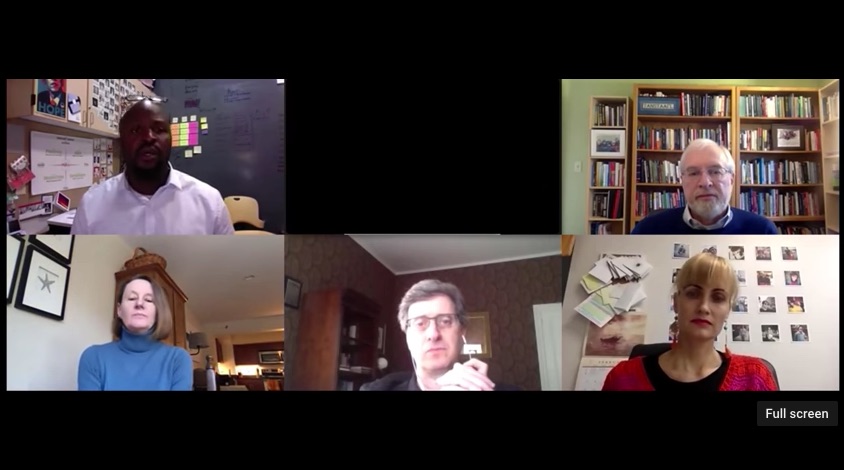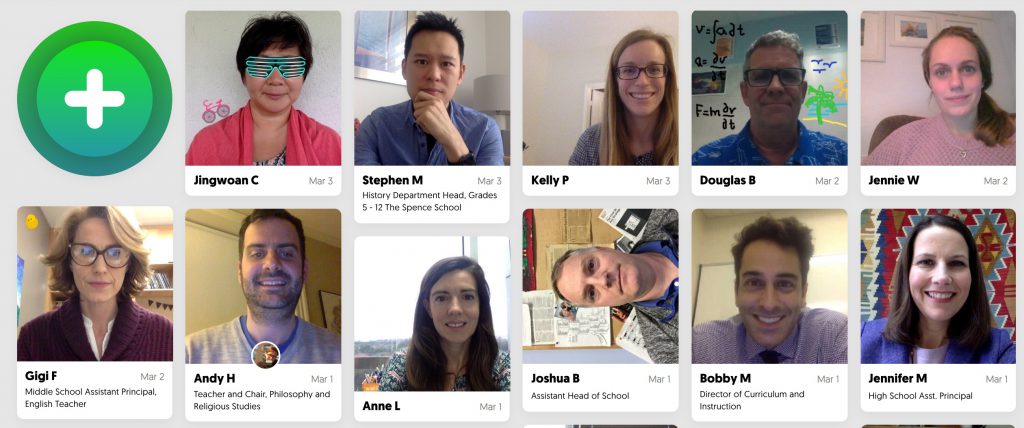4 Design Principles for Introducing Mastery Learning
How do you introduce learners to a topic they ultimately must define for themselves?
Several months ago, GOA partnered with the Mastery Transcript Consortium (MTC) to design and facilitate a series of in-person and online professional learning experiences for MTC members. The goal: to introduce educators to the pedagogy, practice, and possibilities of a mastery-based approach to teaching and learning, one that might result in the adoption of a transcript that visualizes skills and student work, not grades.
Last week, the first of three online courses we’ve built for the MTC, “Introduction to Mastery Learning,” concluded. The enrollment numbers reflect educators’ passion for this topic and their desire to connect with other colleagues committed to the same work: 212 educators from more than 50 different MTC member schools joined, accumulating more than 20,000 page views and hundreds of discussion posts and assignment submissions, all in just two weeks.
In designing and facilitating the course, we found ourselves inspired and challenged by an idea shared by our guest panel of experts, which included Charles Fadel of The Center for Curriculum Redesign, Kevin Mattingly of Riverdale Country School, Kaleb Rashad of High Tech High, and Alexis Wiggins of the John Cooper School.
They concluded their discussion by emphasizing that “mastery learning” and its related terms don’t have a single definition; rather, the student-centered pedagogy demands schools define it for themselves, keeping their particular learners and contexts in mind. It’s a big, rich, complex topic that (rightly) resists standardization.
How do you design and facilitate a course where the learning target is so personal and so flexible? GOA let four core principles guide our work.
Let Learners Drive
Effective mastery learning and effective online learning share a key trait: flexibility. Very linear or proscribed curricula don’t engage students in these environments. With that in mind, we took the six strands of the course and built them as “Parallel Units,” meaning participants could explore them in any order, at any time, letting their interests and needs (rather than ours) drive their choices. Each unit could be explored to any depth, and those who completed all phases of a unit earned a digital badge. Thus, those motivated to do so could dive deep, leaving time and space for others to explore more broadly.
Course analytics — where people clicked, viewed, and participated — revealed quickly and powerfully what the interests of participants were: the Assessment discussion had twice as many posts as any other unit. The flexible design of the course and the built-in data collection that’s part of online learning gave us important insight into who our learners were and what they were interested in.
Lean into Questions, not Answers
The very first prompt in the course (an icebreaker we built in Flipgrid) asked participants to identify a challenging question important to them.
Articulating a driving question helps guide the navigation of a learning experience, especially one designed in a highly flexible format. Constructing meaning and purpose around learner-articulated questions and goals is an important component of mastery learning, and sharing these questions openly builds course community and also gives participants insights into the work and concerns of other schools.
Prioritize Networked Learning
Of all the questions asked in the class, the most common began with, “How do you…?” Participants craved examples of classroom practices, change management strategies, and institutions that had proven successful in implementing a mastery learning model. In other words, they were eager to be connected to people and ideas beyond their immediate contexts, to tap into the global network of educators organizations like MTC offer.
GOA used three strategies to address this. First, we curated resources that were diverse in key ways: who made them, how long they were, what format they took, where they came from, and when they were created. Second, we assembled a guest panel of experts who represented theory and practice in a variety of contexts. Third, and most importantly, we leveraged the hive mind of the course participants, asking them to share both curated and created resources from their own experience and post them, building on the foundational work of the course with additional resources, stories, and experiences that others could bring back to their schools.
A few examples: Peter Zdrojewski from the Branson School shared a social justice project he built with students, Mark Silberberg of Little Red School House & Elisabeth Irwin High School described a reimagined approach to experiential learning, and Colleen Kyle of Lakeside School offered her “Foment a Momement” project, just a few of the many ways participants shared potential inspiration and models for other educators.
Have a Bias Towards Action
Throughout, we asked participants to explore their own communities and schools to find and document examples of mastery learning at work. Just as students must in a mastery learning environment, participants constructed their own meaning by seeking out new experiences and ideas in the world, not just in school or online.
A two-week online course like this does its job when it launches learners on paths of further inquiry and action. It is a beginning, not an end. As we prepare for the next course in the sequence for MTC members, “Teaching for Mastery Learning Lab,” we’re already thinking about how to invite participants to share their journeys toward a deeper understanding of the work of the MTC and how it might affect their work and that of their schools.
Not a MTC member? Be a part of other GOA professional learning experiences, which we open to all educators.
For more, see:
- Four Takeaways for Rethinking School
- Why Online Collaboration and Connection Matter More Than Ever
- Partnering with Students, Teachers, and Leaders at American International School Chennai
Global Online Academy (GOA) reimagines learning to empower students and teachers to thrive in a globally networked society. Professional learning opportunities are open to any educator. To sign up or to learn more, see our Professional Learning Opportunities for Educators or email hello@GlobalOnlineAcademy.org with the subject title “Professional Learning.” Follow us on Twitter @GOALearning. To stay up to date on GOA learning opportunities, sign up for our newsletter here.


